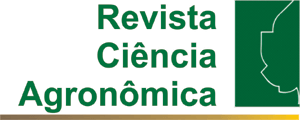Efficiency in the use of genetic variability, whether existing or created, increases when properly explored and analysed. Incorporation of biotechnology into breeding programs has been the general practice. The challenge for the researcher is the constant development of new and improved cultivars. The aim of this experiment was to select progenies with superior characteristics, whether or not carriers of the RR gene, derived from bi-parental crosses in the soybean, with the help of multivariate techniques. The experiment was carried out in a family-type experimental design, including controls, during the agricultural year 2010/2011 and 2011/2012 in Jaboticabal in the Brazilian State of São Paulo. From the F3 generation, phenotypically superior plants were selected, which were evaluated for the following traits: number of days to flowering; number of days to maturity; height of first pod insertion; plant height at maturity; lodging; agronomic value; number of branches; number of pods per plant; 100-seed weight; number of seeds per plant; grain yield per plant. Given the results, it appears possible to select superior progeny by principal component analysis. Cluster analysis using the K-means method links progeny according to the most important characteristics in each group and identifies, by the Ward method and by means of a dendrogram, the structure of similarity and divergence between selected progeny. Both methods are effective in aiding progeny selection.
Glycine max; Genetic variability; Multivariate analysis





